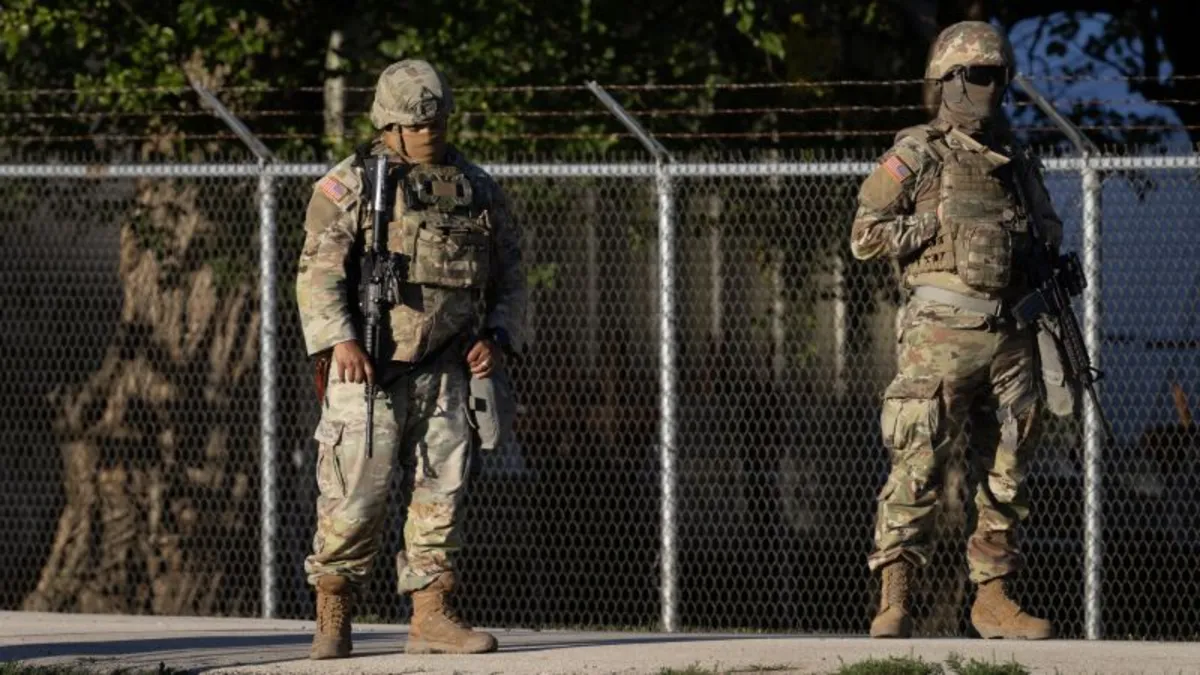
A federal appeals court made a significant ruling on Saturday, allowing National Guard troops in Illinois to remain under federal control while simultaneously preventing their deployment during the ongoing legal dispute between the Trump administration and the state of Illinois. This decision comes from the Seventh Circuit Court of Appeals, which agreed to temporarily pause part of a lower court's order that had previously halted the deployment of National Guard troops for two weeks.
This ruling is the latest development in a complex legal saga that spans the nation, focusing on whether President Donald Trump is overstepping his authority by deploying troops to manage demonstrations outside ICE facilities in cities governed by Democratic leadership, such as Chicago and Portland. The appeals court's decision indicates a cautious approach, emphasizing that "members of the National Guard do not need to return to their home states unless further ordered by a court to do so."
As of now, troops stationed in the Chicago area are engaged in "planning and training" activities but are not involved in any operational duties, according to a Friday update from US Northern Command. The command had previously reported that there are approximately 300 members of the Illinois National Guard and 200 members of the Texas National Guard activated under Title 10, primarily focused on non-operational tasks at this time.
Earlier this week, the Trump administration filed a notice of appeal against a ruling by US District Court Judge April Perry, who had granted a temporary restraining order that blocked the deployment of National Guard troops in Illinois. In her ruling, Judge Perry stated, "I have seen no credible evidence that there has been rebellion in the state of Illinois" that would warrant the federalization of National Guard soldiers. She criticized the Department of Homeland Security assessments of the protests as "unreliable," further cautioning that sending in troops would "only add fuel to the fire."
In response to the Trump administration's portrayal of their cities as "war-ravaged" and violently chaotic, local leaders in Illinois and Oregon have strongly contested these characterizations. They argue in court that the reality on the ground is far less severe than depicted by federal officials, emphasizing their commitment to maintaining order without the need for federal troop deployment.
As this legal battle unfolds, the implications for the National Guard and federal authority continue to raise questions about the balance of power and the role of military forces in domestic affairs. The outcome of this case may set important precedents for how federal and state governments interact during times of civil unrest.